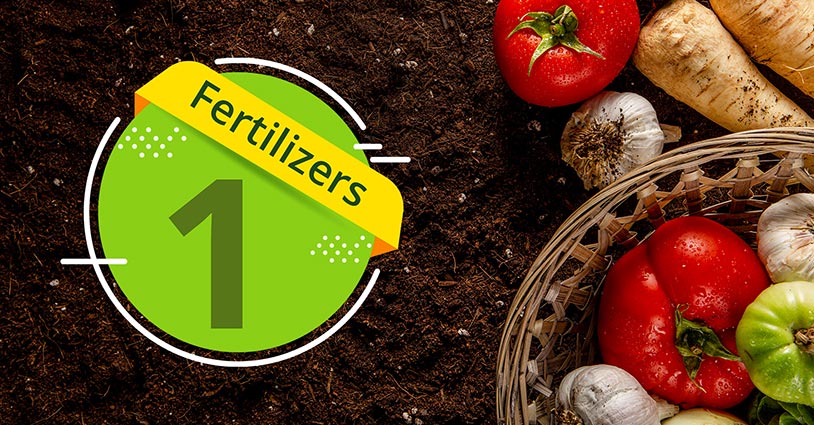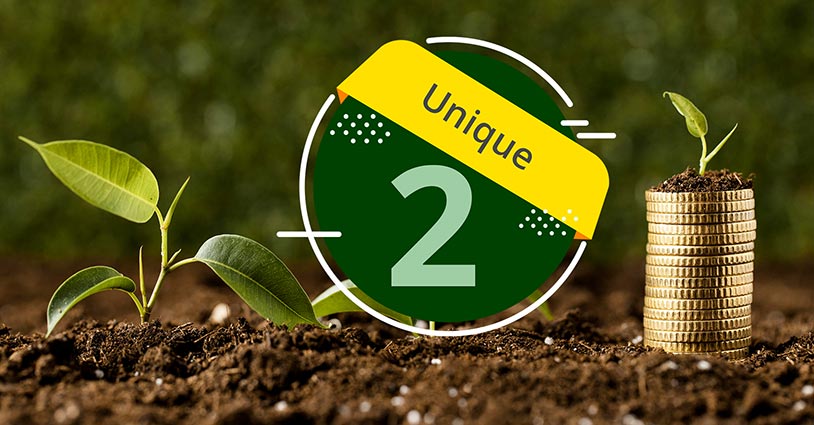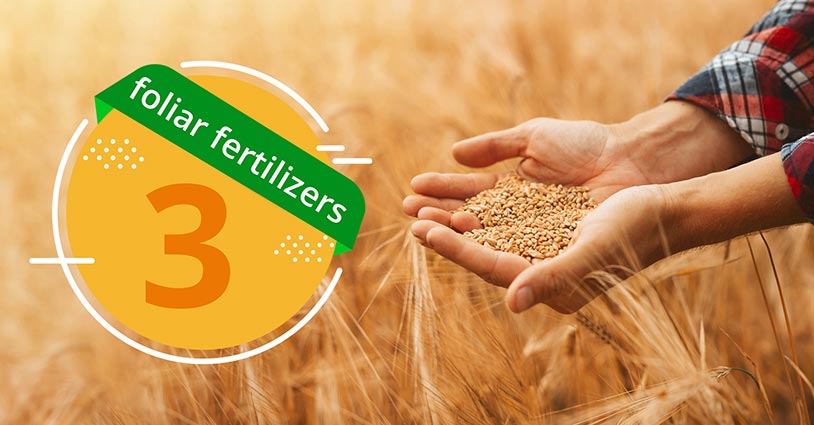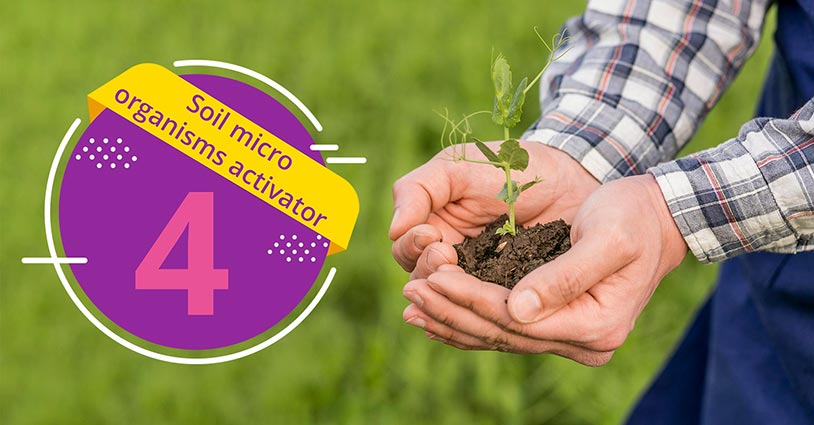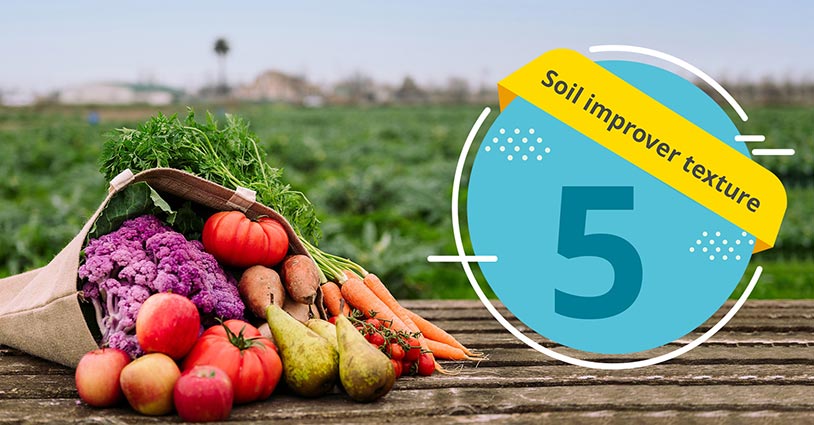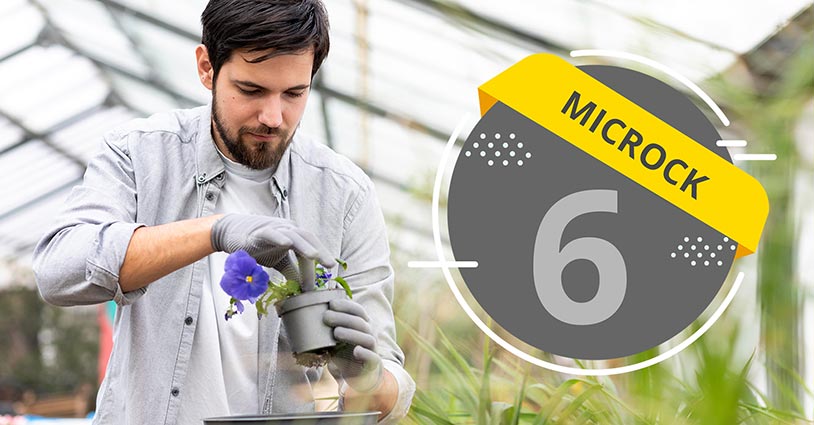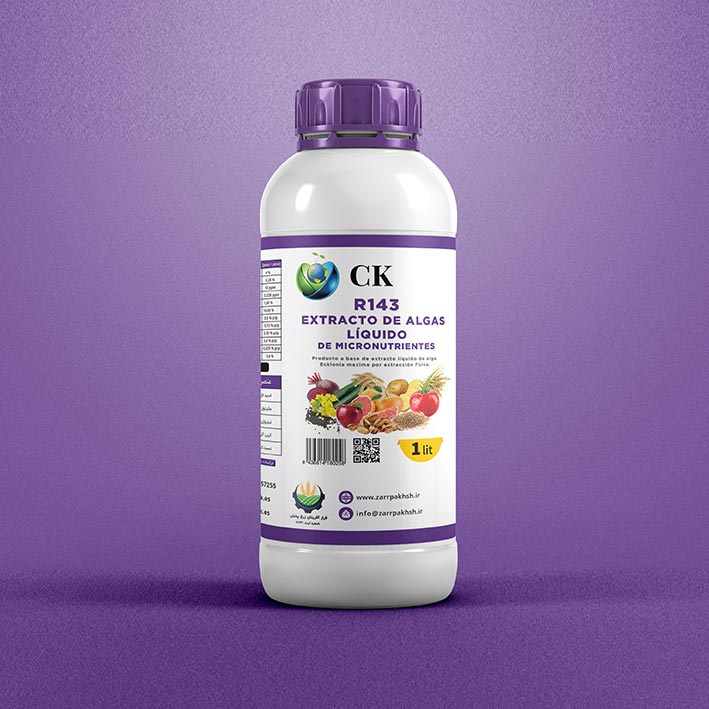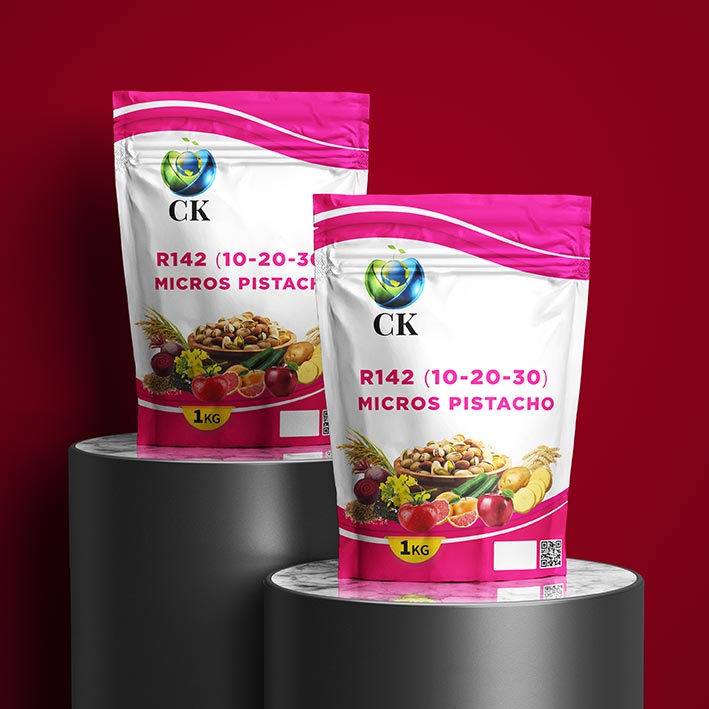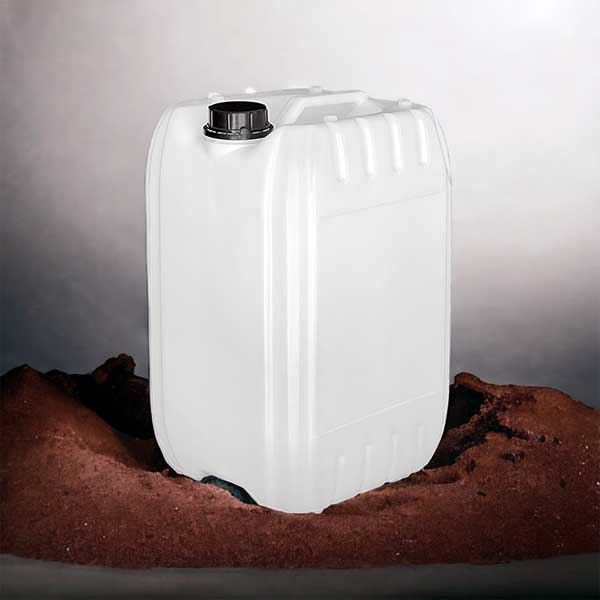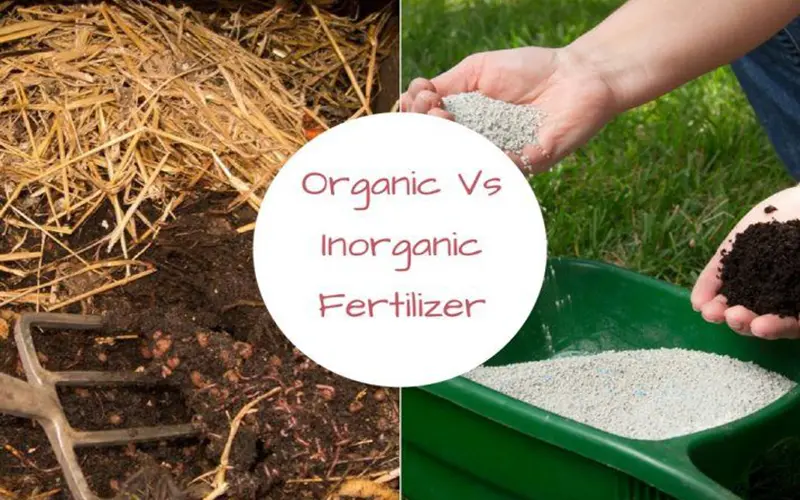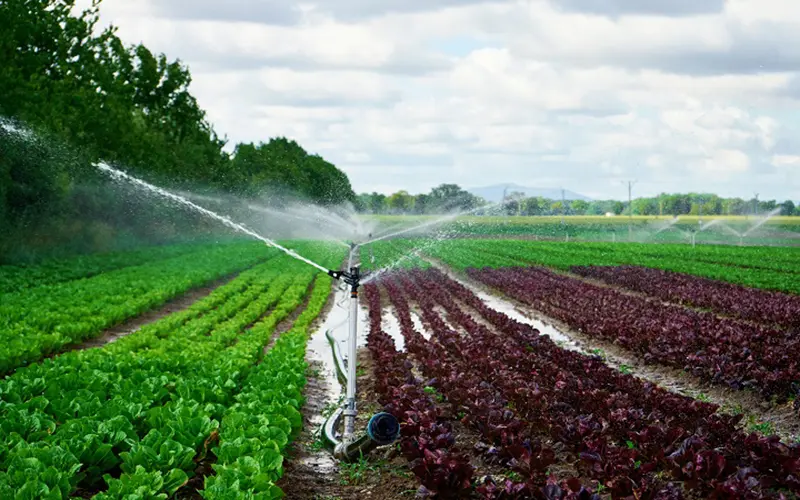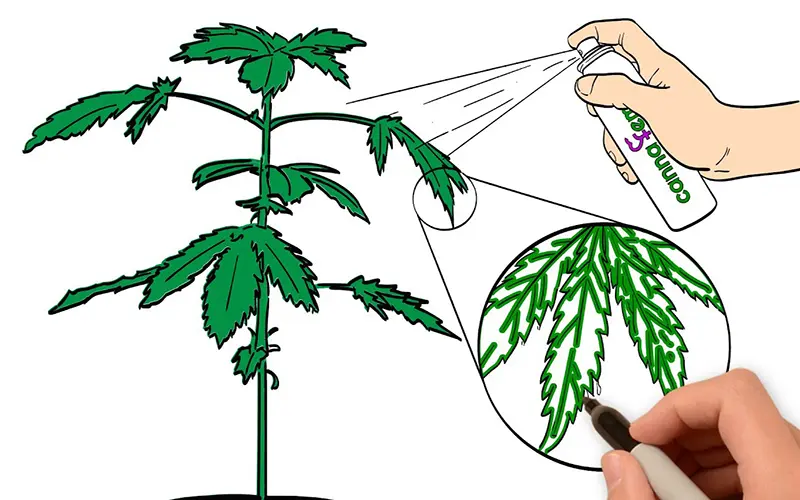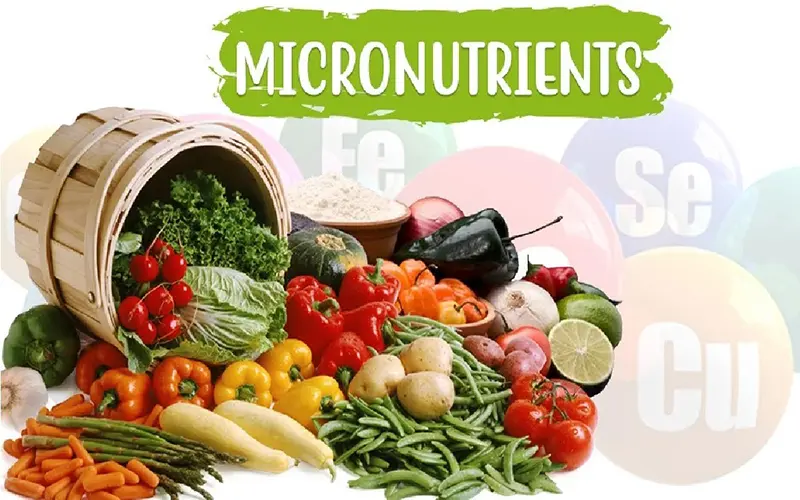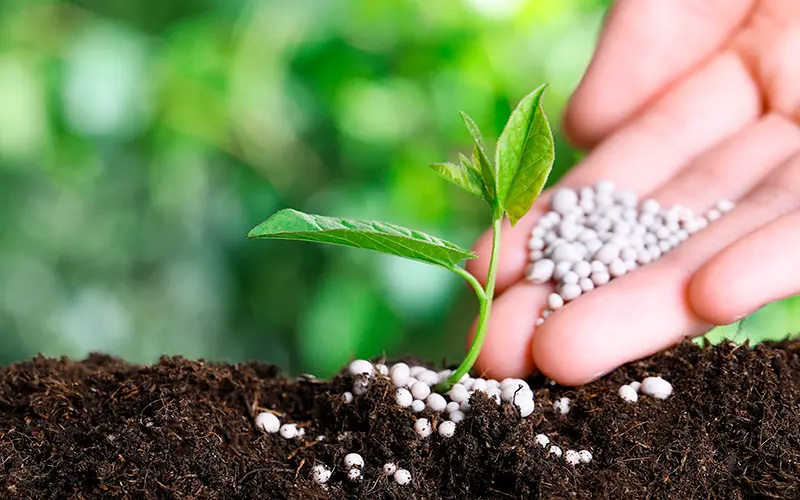
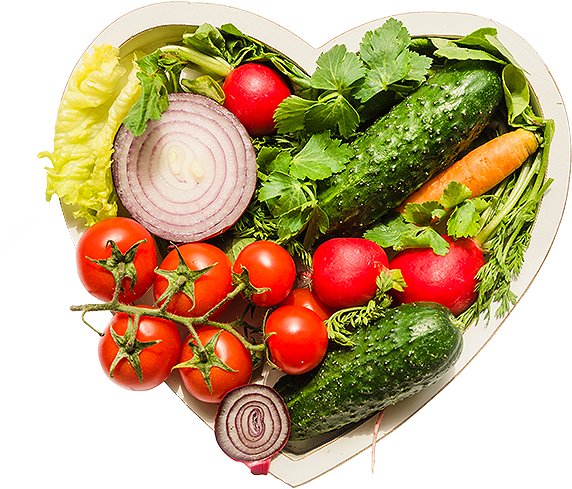



CK Fertilizers

Premium Fertilizers for Healthier Soil.
- Eco-friendly fertilizers
- More productive crops
At CK , our mission is to enhance agricultural sustainability by providing high-quality, organic fertilizers.
We are committed to improving soil health, boosting crop yields, and promoting eco-friendly farming practices. Through innovation and dedication to environmental stewardship, we aim to empower farmers with the tools they need for successful, sustainable farming, ensuring a healthier future for generations to come.
You can learn more about our company and become familiar with our products and company policies.
CK Products available now
"We take pride in these achievements."




Our Blog
When it comes to nourishing plants and boosting crop yields, farmers and gardeners often face a key decision: Organic vs. Chemical Fertilizers.
Both types of fertilizers provide essential nutrients, but they do so in different ways, with varying effects on the soil, environment, and long-term crop health. Understanding the pros and cons of each helps you make informed choices based on your farming goals and values.
What Are Organic Fertilizers?
Organic fertilizers are derived from natural sources such as compost, manure, bone meal, and plant residues. They improve soil structure and add organic matter while slowly releasing nutrients. In the debate of Organic vs. Chemical Fertilizers, organic options are often praised for their environmental benefits and soil-enhancing properties.
Pros:
- Improve soil health over time
- Safer for the environment and beneficial soil organisms
- Lower risk of over-fertilization or plant burn
Cons:
- Slower nutrient release
- May require more volume to achieve the same results
- Nutrient content can vary between batches
Recommended Products: CK NPK Complex Fertilizers
What Are Chemical Fertilizers?
Chemical (or synthetic) fertilizers are manufactured using industrial processes. They contain concentrated amounts of essential nutrients like nitrogen (N), phosphorus (P), and potassium (K) in precise ratios. In comparing Organic vs. Chemical Fertilizers, chemical products offer speed and consistency.
Pros:
- Fast-acting and highly effective
- Easy to measure and apply
- Readily available in various formulations
Cons:
- Can degrade soil quality with long-term use
- Higher risk of runoff and environmental pollution
- May harm soil microbes and structure
Impact on Soil and Environment
A major factor in the Organic vs. Chemical Fertilizers discussion is the long-term impact on soil and ecosystems. Organic fertilizers enhance biodiversity and improve water retention, while chemical fertilizers can lead to salt buildup and nutrient leaching if misused. Choosing the right fertilizer depends not only on short-term yield goals but also on the long-term health of your land.
Recommended Products: Unique Fertilizers
Cost and Availability
From a cost perspective, chemical fertilizers may seem more economical due to their potency and widespread availability. However, when evaluating Organic vs. Chemical Fertilizers, it’s important to consider hidden costs such as environmental cleanup and reduced soil fertility. Organic fertilizers may cost more upfront but can reduce the need for soil amendments over time.
Which Should You Choose?
The right choice between Organic vs. Chemical Fertilizers depends on your specific needs:
- Use organic fertilizers if you prioritize sustainability, soil health, and long-term productivity.
- Use chemical fertilizers if you need fast results or precise control over nutrient delivery—especially for commercial-scale operations.
Many modern farmers adopt a blended approach, combining the strengths of both systems.
Nutrient Availability and Absorption
In the Organic vs. Chemical Fertilizers comparison, nutrient availability is a major factor. Chemical fertilizers offer immediate nutrient release, making them ideal for quick plant growth. Organic fertilizers, on the other hand, release nutrients slowly, which supports long-term soil fertility but may not meet urgent crop demands. Balancing quick needs with sustained health is key.
Storage and Shelf Life
Chemical fertilizers have a longer shelf life and are easier to store due to their dry, uniform composition. In contrast, organic fertilizers like compost or manure may decompose over time, attract pests, or require more space. These practical considerations influence the choice in the Organic vs. Chemical Fertilizers decision, especially for small or resource-limited farms.
Regulatory and Certification Impact
For farmers pursuing organic certification, using chemical fertilizers is not allowed. This makes Organic vs. Chemical Fertilizers not just a technical decision, but a legal one. Organic fertilizers align with organic farming standards and eco-labeling, which can also increase the market value of crops in certain markets.
For further reading, check out:
Conclusion
The debate between Organic vs. Chemical Fertilizers isn’t about choosing a winner—it’s about understanding the trade-offs. Each has clear advantages and limitations. By assessing your crop type, soil condition, and environmental goals, you can select a fertilization strategy that aligns with both your productivity targets and your values.
FAQs
1. Which is better for long-term soil health: organic or chemical fertilizer?
Organic fertilizers are better for long-term soil health because they improve soil structure, increase microbial activity, and add organic matter.
2. Can I use both organic and chemical fertilizers together?
Yes. Many farmers use a combined approach to get the fast results of chemical fertilizers and the soil benefits of organic ones.
3. Do organic fertilizers work as quickly as chemical fertilizers?
No. Organic fertilizers release nutrients slowly over time, while chemical fertilizers act faster but may not improve soil in the long run.
Modern agriculture demands smarter, more efficient methods to grow food while conserving resources. One such approach is combining Drip Irrigation and Fertilizer, often referred to as fertigation. This powerful duo allows farmers to deliver both water and nutrients directly to the plant roots, reducing waste and improving crop performance.
What Is Drip Irrigation and Fertilizer?
Drip Irrigation and Fertilizer systems use tubing to slowly release water mixed with dissolved nutrients near the plant’s root zone. This method ensures that crops receive consistent hydration and the exact amount of nutrients needed at various stages of growth, leading to healthier plants and higher yields.
Key Benefits of Drip Irrigation and Fertilizer
Efficient Water Use
Water is delivered only where needed, minimizing evaporation and runoff.
Recommended Products: CK NPK Complex Fertilizers
Targeted Nutrient Delivery
Nutrients reach the root zone directly, reducing losses to leaching or volatilization.
Improved Crop Yield and Quality
Steady feeding promotes stronger growth and better fruit or grain quality.
Environmental Sustainability
By reducing excess fertilizer use, this system helps prevent pollution of nearby water sources.
Choosing the Right Fertilizers
When using Drip Irrigation and Fertilizer systems, it’s essential to select water-soluble fertilizers that won’t clog the drip lines. Commonly used nutrients include nitrogen, phosphorus, potassium, and trace elements like zinc and iron. Compatibility with your water quality and crop type is also critical.
Recommended Products: Unique Fertilizers
Important Tips for Effective Use
- Use filters to prevent clogging from particles or undissolved fertilizer.
- Conduct regular system checks to monitor pressure and flow consistency.
- Adjust fertigation schedules based on crop stage, weather, and soil testing results.
These steps ensure that your Drip Irrigation and Fertilizer setup remains reliable and effective throughout the growing season.
Is Drip Fertigation Right for You?
Drip Irrigation and Fertilizer systems are ideal for high-value crops, orchards, vineyards, and vegetable farms. While initial installation may cost more than traditional systems, the long-term savings in water, labor, and fertilizer make it a wise investment for many growers.
Integration with Automation Systems
Modern Drip Irrigation and Fertilizer systems can be fully automated using timers, sensors, and nutrient controllers. These technologies help farmers schedule precise watering and feeding times, reducing human error and saving labor. Automation also allows for remote monitoring, making it easier to manage large fields with minimal effort.
Suitability for Different Soil Types
Drip Irrigation and Fertilizer systems are effective across a wide range of soil conditions. In sandy soils, the slow application prevents nutrients from leaching away, while in clay soils, it avoids waterlogging. Customizing emitter spacing and flow rates based on soil type ensures maximum efficiency.
Challenges and Maintenance Considerations
Despite their benefits, Drip Irrigation and Fertilizer systems require regular maintenance. Clogging, algae buildup, and uneven nutrient distribution can occur if filters aren’t cleaned or water quality is poor. Routine flushing of the lines and water testing help maintain performance and extend system lifespan.
For further reading, check out:
Conclusion
Combining Drip Irrigation and Fertilizer is a smart, sustainable strategy for modern agriculture. It increases nutrient use efficiency, reduces waste, and supports healthier, more productive plants. As climate challenges grow and resources become scarcer, this farming combo is no longer optional—it’s essential.
FAQs
1. Can all types of fertilizers be used in drip irrigation systems?
No. Only water-soluble fertilizers should be used to prevent clogging and ensure even distribution through the drip lines.
2. How often should I fertilize using a drip system?
Fertilizer frequency depends on the crop, soil condition, and growth stage. Many farmers use small doses weekly or bi-weekly for consistent nutrient supply.
3. Is drip fertigation cost-effective for small farms?
Yes. While the initial setup cost can be higher, drip fertigation reduces water, labor, and fertilizer use—leading to long-term savings even for small farms.
Fertilizer Burn is a common yet preventable issue that occurs when plants are exposed to excessive fertilizer, particularly those high in nitrogen or salts. This condition can damage or kill roots and foliage, leading to reduced growth, yellowing, or even plant death. Understanding how Fertilizer Burn happens and how to avoid it is essential for maintaining healthy, productive crops and gardens.
What Causes Fertilizer Burn?
Fertilizer Burn happens when too much fertilizer is applied or when it is applied incorrectly. High concentrations of nutrients—especially nitrogen—create a high salt index around the roots, drawing moisture out of plant tissues through a process called reverse osmosis. This dehydrates the plant and damages cell walls, resulting in scorched or dried-out leaves.
Symptoms of Fertilizer Burn
- Leaf edges turning brown or crispy
- Yellowing (chlorosis) between leaf veins
- Stunted growth or sudden wilting
- Salt crust on the soil surface
These symptoms usually appear within days of over-application, especially after dry conditions or poor watering practices.
Recommended Products: CK NPK Complex Fertilizers
How to Prevent Fertilizer Burn
Follow Label Instructions
Always apply fertilizer according to package directions. Over-application is one of the leading causes of Fertilizer Burn.
Water Before and After Application
Moist soil reduces the risk of salt buildup, and watering after fertilizing helps distribute nutrients more evenly and dilute concentrations.
Use Slow-Release Fertilizers
These release nutrients gradually, lowering the risk of overwhelming the plant with salts all at once.
Avoid Fertilizing During Heat or Drought
Plants are more susceptible to Fertilizer Burn when they’re already stressed. Apply during cooler periods with adequate soil moisture.
Treating Fertilizer Burn
If you suspect Fertilizer Burn, act quickly:
- Flush the soil with large amounts of water to leach out excess nutrients.
- Remove visibly damaged leaves if they are severely affected.
- Pause all fertilizer applications until the plant shows signs of recovery.
Recovery depends on the severity of the burn and the plant’s resilience. Some plants may bounce back in a week, while others may suffer permanent damage.
Recommended Products: Unique Fertilizers
Fertilizer Selection Tips
Choosing the right fertilizer can greatly reduce the risk of Fertilizer Burn:
- Opt for balanced or lower-salt formulations
- Use organic fertilizers like compost, which are less concentrated
- Monitor nutrient needs with regular soil testing
Importance of Soil Testing Before Fertilization
Conducting a soil test helps determine the exact nutrient needs of your plants and prevents unnecessary fertilization. By knowing what’s already present in the soil, you can avoid over-application, one of the primary causes of Fertilizer Burn. Soil testing also helps you choose the right type and amount of fertilizer.
Differences Between Organic and Synthetic Fertilizers
Organic fertilizers like compost or manure release nutrients slowly and pose a lower risk of Fertilizer Burn. In contrast, synthetic fertilizers are more concentrated and fast-acting, increasing the chance of salt buildup if overused. Understanding these differences helps tailor safe and effective fertilization practices.
Signs of Recovery After Fertilizer Burn
Once you’ve flushed the soil and paused fertilization, look for signs of new green growth, firm leaves, and steady improvement in plant color. Recovery time varies, but gradual regrowth indicates your plant is overcoming Fertilizer Burn and absorbing nutrients more effectively.
For further reading, check out:
Conclusion
Fertilizer Burn is a preventable condition that results from overfeeding plants or improper application methods. By understanding the signs, using fertilizers wisely, and sticking to best practices, you can keep your plants healthy and thriving without the risks of nutrient overload.
FAQs
1. How long does it take for plants to recover from Fertilizer Burn?
Recovery can take anywhere from a few days to a few weeks, depending on the severity of the burn and the plant type.
2. Can I reuse soil that caused Fertilizer Burn?
Yes, but flush it thoroughly with water to remove excess salts before planting again or reapplying fertilizer.
3. Is it better to under-fertilize than risk Fertilizer Burn?
Yes. Slight under-fertilization is safer and can be corrected more easily than over-fertilization, which can damage or kill plants.
Choosing between Foliar vs. Root Application can significantly impact nutrient uptake, crop health, and overall yields. Both methods have distinct advantages and limitations, and understanding their differences helps growers tailor fertilization strategies for optimal results.
What Is Foliar Application?
Foliar application involves spraying dissolved nutrients directly onto plant leaves. This method allows for rapid absorption through stomata and cuticle, bypassing soil interactions. Key benefits include:
- Quick correction of visible deficiencies
- Targeted feeding during critical growth stages
- Reduced nutrient losses from leaching or fixation in soil
However, foliar sprays may cause leaf burn if concentrations are too high, and coverage must be uniform for best results.
What Is Root Application?
Root application delivers nutrients through soil, either via granular fertilizer, fertigation, or soil drenching. Its advantages are:
- Sustained nutrient release feeding plants over longer periods
- Enhanced root development as roots explore nutrient-rich zones
- Lower risk of phytotoxicity compared to high-concentration foliar sprays
On the downside, root-applied nutrients can become immobilized by soil pH or microbial activity, and uptake may be slower during cool or dry conditions.
Comparing Foliar vs. Root Application Efficiency
When evaluating Foliar vs. Root Application, consider the nutrient type and crop stage. Micronutrients and quickly needed elements (like calcium or boron) often respond best to foliar feeding. Macronutrients (nitrogen, phosphorus, potassium) typically require larger quantities, making root application more practical and cost‑effective.
Factors Influencing Effectiveness
Environmental Conditions:
High humidity and mild temperatures favor foliar uptake, while well‑moistened soils improve root absorption.
Crop Species:
Some crops have waxy leaves that hinder foliar absorption, tipping the balance toward root feeding.
Soil Health:
In soils prone to nutrient fixation or leaching, Foliar vs. Root Application decisions hinge on maintaining consistent nutrient availability.
Recommended Products: CK NPK Complex Fertilizers
Best Practices for Combined Use
Integrating both methods often yields the best outcomes:
Root application at planting to establish a nutrient baseline.
Foliar sprays during bloom or stress periods for a nutrient boost.
Soil tests and tissue analysis to fine‑tune timing and concentrations for each method.
Cost and Economic Considerations
When choosing between Foliar vs. Root Application, factor in the costs of materials, equipment, and labor. Foliar sprays may require specialized nozzles and more frequent applications, increasing operational expenses. Root applications often involve bulk fertilizers and existing irrigation systems, which can be more cost‑efficient for macronutrient delivery over large areas.
Recommended Products: Unique Fertilizers
Equipment and Labor Requirements
Foliar feeding demands precise spray equipment, regular calibration, and skilled operators to ensure even coverage and avoid phytotoxicity. Root application can leverage standard spreaders or fertigation lines, reducing the need for constant monitoring. Balancing labor inputs for both methods helps optimize your overall fertilization program.
Environmental and Sustainability Impacts
Overuse of foliar sprays can lead to off‑target drift and potential non‑point pollution, while excessive root‑applied nutrients may leach into groundwater. Integrating Foliar vs. Root Application strategies with buffer zones, split applications, and soil health practices minimizes environmental risks and promotes a more sustainable nutrient management system.
For further reading, check out:
Conclusion
Ultimately, the choice between Foliar vs. Root Application depends on crop needs, environmental factors, and production goals. By leveraging the rapid response of foliar feeding alongside the stability of root application, growers can ensure balanced nutrition, healthier plants, and maximized yields.
FAQs
1. When should I choose foliar over root application?
Use foliar sprays for quick correction of micronutrient deficiencies or during stress periods when root uptake is limited.
2. Can foliar application replace all root feeding?
No. Foliar feeding is best for small, targeted doses—macronutrients still require root applications for sustained supply.
3. Is timing important for foliar sprays?
Yes. Apply during cooler, humid parts of the day (early morning or late afternoon) to maximize leaf absorption and minimize burn.
Micronutrients in Agriculture play a critical role in crop health and yield, despite being needed in much smaller amounts than primary nutrients like nitrogen, phosphorus, and potassium.
These elements—such as zinc, iron, manganese, copper, boron, molybdenum, and chlorine—are essential for plant metabolism, enzyme function, and stress tolerance. Understanding the importance of Micronutrients in Agriculture can help farmers optimize fertilizer programs and achieve more robust, nutritious harvests.
The Role of Micronutrients in Plant Growth
Although required in trace quantities, Micronutrients in Agriculture are vital catalysts in biochemical processes. For example, iron is a key component of chlorophyll synthesis, while zinc activates enzymes involved in protein production and growth regulation.
Without adequate micronutrients, plants develop deficiencies that manifest as chlorosis, stunted growth, or poor fruit set.
Common Micronutrient Deficiencies and Symptoms
Recognizing deficiency symptoms is the first step to correcting them. Boron deficiency often causes blossom end rot in fruits, whereas manganese deficiency leads to interveinal chlorosis on young leaves. By monitoring crops for these signs, growers can apply targeted Micronutrients in Agriculture to restore balance before yield losses occur.
Recommended Products: CK NPK Complex Fertilizers
Soil Testing and Foliar Analysis
To manage Micronutrients in Agriculture effectively, regular soil and tissue tests are essential. Soil tests reveal total available levels, while foliar analysis indicates what the plant actually absorbs.
With this data, agronomists can recommend precise micronutrient blends—whether through soil incorporation or foliar sprays—to address specific crop needs.
Methods of Micronutrient Application
Micronutrients can be applied via granular fertilizers, chelated forms, or foliar sprays. Chelated micronutrients often exhibit better availability in challenging pH conditions.
Foliar application offers rapid correction of deficiencies and is particularly useful during critical growth stages. Choosing the right delivery method ensures that Micronutrients in Agriculture reach the plant when and where they’re needed most.
Benefits of Balanced Micronutrient Management
Proper use of Micronutrients in Agriculture enhances root development, improves stress resistance (drought, heat, or disease), and increases nutrient use efficiency.
Balanced micronutrient levels also contribute to higher protein content and better-quality produce, meeting both yield and nutritional goals for modern farming operations.
Recommended Products: Unique Fertilizers
Integrating Micronutrients into Nutrient Programs
An effective fertilizer program considers both macro- and micronutrients. Integrating Micronutrients in Agriculture into regular fertilization schedules helps prevent hidden hunger—where plants look healthy but suffer subclinical deficiencies.
Split applications and blending micronutrient carriers with macronutrient fertilizers simplify logistics and ensure uniform dispersion.
Sustainability and Environmental Impact
Using Micronutrients in Agriculture judiciously minimizes environmental runoff and leaching compared to over-application of macronutrients.
Targeted micronutrient management supports sustainable agriculture by reducing waste, lowering input costs, and protecting surrounding ecosystems from nutrient pollution.
Advances in Micronutrient Delivery Technologies
Recent innovations such as nano‑encapsulation and controlled‑release coatings have improved the efficiency of Micronutrients in Agriculture. These technologies ensure a steady supply of trace elements over time, reduce leaching losses, and allow for lower application rates.
Economic Benefits of Micronutrient Management
Investing in targeted micronutrient programs often yields a high return. By preventing yield losses and improving crop quality, farmers can increase marketable output and reduce the need for corrective treatments, making micronutrient applications cost‑effective in the long run.
Challenges and Future Outlook
Despite clear advantages, widespread adoption of micronutrient programs faces barriers such as lack of awareness, testing infrastructure, and upfront costs.
Ongoing research and extension services are critical to overcome these challenges and promote best practices in Micronutrients in Agriculture.
For further reading, check out:
Conclusion
Optimizing micronutrient use completes a comprehensive fertility program. By leveraging modern delivery methods, understanding economic returns, and addressing adoption hurdles, growers can maximize both yield and sustainability.
A strategic focus on these tiny but vital elements ensures healthier crops and more resilient agricultural systems.
FAQs
1. How often should I test for micronutrient deficiencies?
Annual soil and tissue tests—ideally before each planting season—help you detect and correct imbalances early.
2. What’s the fastest way to correct a micronutrient deficiency?
Foliar sprays of chelated nutrients provide rapid uptake, while soil‑applied granular or liquid formulations offer longer‑term correction.
3. Can I apply micronutrients with my regular N–P–K fertilizer?
Yes—blending micronutrient carriers into your standard fertilizer or using combined N–P–K‑micronutrient mixes simplifies application and ensures uniform distribution.
Selecting the Right Fertilizer for Crops is crucial for maximizing yield, improving soil health, and ensuring sustainable farming. With so many products on the market—from granular blends to liquid solutions—knowing how to match fertilizer to your specific crop needs can make all the difference.
Key Steps to Choosing the Right Fertilizer
1. Start with a Soil Test
Before investing in any fertilizer, perform a comprehensive soil test. A professional analysis reveals existing nutrient levels and pH, guiding you toward the Right Fertilizer for Crops by identifying deficiencies in nitrogen, phosphorus, potassium, or secondary nutrients.
2. Match N–P–K Ratios to Crop Demands
Different crops require distinct balance of primary nutrients:
- Leafy greens favor high nitrogen formulations.
- Root vegetables benefit from extra phosphorus.
- Fruiting crops need ample potassium.
By understanding your crop’s lifecycle, you can select the Right Fertilizer for Crops with an N–P–K ratio tailored to each growth stage.
Recommended Products: CK NPK Complex Fertilizers
3. Choose Between Organic and Synthetic Options
Organic fertilizers (compost, manure, bone meal) release nutrients slowly and improve soil texture. Synthetic products deliver precise nutrient levels quickly. The Right Fertilizer for Crops often combines both: immediate nutrient boost from synthetics and long-term soil health from organic amendments.
4. Consider Application Method and Timing
Granular fertilizers work best when incorporated into soil before planting, while foliar sprays or liquid feeds can correct deficiencies mid-season. Applying the Right Fertilizer for Crops at the optimal time—such as pre-planting and key growth stages—ensures efficient nutrient uptake and minimizes waste.
5. Factor in Environmental and Economic Concerns
Efficient use of the Right Fertilizer for Crops means preventing runoff and reducing input costs. Split applications, slow-release formulations, and buffer strips around waterways all contribute to sustainable fertilization practices that protect both your budget and the environment.
6. Read and Interpret Fertilizer Labels
Fertilizer packages list nutrient percentages and secondary ingredients. Learn to decode the N–P–K numbers, plus calcium, magnesium, sulfur, and trace elements. Understanding these labels ensures you pick the Right Fertilizer for Crops that fills specific nutrient gaps without overloading your soil.
Recommended Products: Unique Fertilizers
7. Include Micronutrients When Needed
Beyond nitrogen, phosphorus, and potassium, crops sometimes require micronutrients like zinc, iron, manganese, and boron. A tissue analysis or visual deficiency symptoms (e.g., interveinal chlorosis) can signal micronutrient needs. Adding a targeted foliar spray or granular mix helps deliver these essential elements.
8. Adjust for Soil pH and Texture
Soil pH affects nutrient availability—acidic soils can lock up phosphorus, while alkaline soils may limit iron uptake. Similarly, sandy soils leach nutrients faster than clay. Test your soil’s pH and texture, then choose the Right Fertilizer for Crops with pH‑adjusting amendments (lime or sulfur) and the appropriate release rate for your soil type.
9. Monitor Crop Response and Refine Your Plan
After applying fertilizer, regularly inspect plant vigor, leaf color, and yield. Keep records of application rates, timing, and weather conditions. If you notice stunted growth or discoloration, revisit your soil tests and tweak your selection or schedule—continual monitoring ensures you maintain the Right Fertilizer for Crops tailored to evolving field conditions.
For further reading, check out:
Conclusion
Choosing the Right Fertilizer for Crops involves understanding your soil, matching nutrient ratios to crop needs, and balancing organic with synthetic sources. By following these guidelines, you’ll promote vigorous growth, higher yields, and healthier soils season after season.
FAQs
1. How often should I test my soil?
Ideally every 1–2 years to track nutrient levels and adjust your Right Fertilizer for Crops plan.
2. Can I use one fertilizer for all my crops?
Not recommended. Different crops have unique N–P–K needs, so choose the Right Fertilizer for Crops based on each crop’s requirements.
3. What’s the best way to apply fertilizer?
In split applications—pre‑planting and at key growth stages—using granular incorporation or foliar sprays for the Right Fertilizer for Crops uptake.



